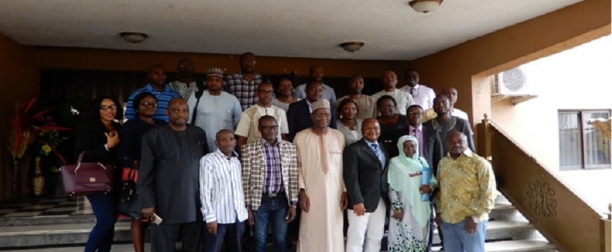In recent years there have been increasing bilateral relations between Nigeria and the Netherlands in different sectors of the economy; however, there seems to be little exchanges at the theoretical-normative levels. In this respect, health research ethics is a possible and plausible common ground of exchanging ideas and experiences while building cooperation and partnership. Diseases, infections and health pandemic ravaging the world are heightening the need for good science and medical research with integrity. In protecting research subjects in rural and urban areas from abuses and unwarranted risks, medical research ethics committees are statutorily established across states in the world to regulate the activities of clinical researchers, provide guidance on medical research integrity and facilitate qualitative healthcare delivery. While Nigeria and the Netherlands are not exceptions to the universal ideals of having medical research ethics committees, the histories, circumstances of emergence, configuration and structures, powers, roles and limitations of such committees in the two countries are diverse with some common interesting grounds, worthy of investigation. Currently, there is no study profiling the variations, the extent, the contents and overlaps of the mechanism for research ethics capacity-building in Nigeria and the Netherlands. Nor are there studies interrogating the areas of win-win partnership in research ethics capacity-building and policies between the two countries. Understanding the ambience, contents and mechanisms of capacity-building in research ethics in each of these countries is critical not only to improved bilateral relations and exchanges in medical research and healthcare but also in shaping future directions in the areas of value orientation, curriculum adaptation and health policy regulations. Thus, through philosophical methods of content analysis, critical review of literatures and comparative evaluation, this paper aims to investigate the areas of overlaps, gaps and the strategic lessons that can impact future partnership in ethical biomedical researches in Nigeria and the Netherlands. This paper argues that the efficiency of health research ethics committees is, among other things, a function of the capacity, skills, training, the goodwill of the stakeholders, and the principles underlying research ethics practices. In achieving the UN sustainable health development goals in Nigeria, leveraging on the medical research ethics models, functions, and institutionalization in the Netherlands deserves to be taken seriously. The Netherlands can gain comparative insights from the value placed on the role of culture in minimizing biomedical research misconduct in Nigeria. In both contexts, there are potential models of cooperation that can be calibrated.
Dec 18
Health research ethics capacity-building in Nigeria and the Netherlands: overlaps, gaps and directions for future partnership
admin
Newsletter
Sign up for our newsletter to receive updates, news, and events:
Download Guides/Forms
- Ethical Guidance for Research among People with Cognitive Impairment
- Policy Statement Regarding Enrollment of Children in Research in Nigeria
- Guidance on the training needed for research studies in Nigeria
- Ethics committee Protocol submission guidelines
- NHREC Biobank Notification Form
- NHREC Policy Statement on Biobanks
- NHREC Study Close-out Report Form
NHREC Approved Training
Membership and Privacy Information

Federal Ministry of Health, Federal Secretariat Complex Shehu Shagari Way, Garki, Abuja P.M.B. 083, Garki-Abuja Tel: 234-9-523-8367 E-mail: info@nhrec.net
Copyright © 2024 National Health Research Ethics Committee, Nigeria - All Rights Reserved | Design By SoundMinds Technologies

